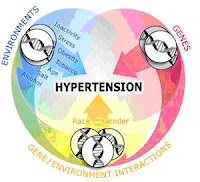By Dr. Willie T. Ong (Internist and Cardiologist)
Most people know how to protect the heart, but do you know how to care for your kidneys? The kidneys' job is to help remove various toxins (drugs and food wastes), and expel them through the urine.As we grow older, our kidneys will also start to age. A problem with kidney disease is that majority of patients have no warning symptoms.
Some time ago, we interviewed Dr. Elizabeth Montemayor, a nephrologist at the Philippine General Hospital. Here are 10 ways to protect your kidneys:
1. Limit your salt intake -- Too much salt is not only bad for your blood pressure, it's also bad for your kidneys. Many die of kidney disease, which can be partly attributed to a high salt intake and fondness for fish sauce, soy sauce, plain salt and salted fish. Even instant noodles, chips and nuts are teeming with salt. The problem with salt is that it encourages the body to retain water, and can increase your blood pressure (which damages the kidneys).
2. Don't load up on high protein foods such as meat and steaks --A high protein diet makes the kidneys work twice as hard. Pretty soon, your kidneys could get tired and some of the weaker kidney cells can die. A friendly reminder to people on a high-protein Atkin's Diet or South Beach Diet. The time-tested doctor's advice of moderation in everything will serve you well. Eat a balanced diet of rice, vegetables, fish and fruits and you can't go wrong.
3. Keep your blood pressure at 130/80 or lower -- If your blood pressure is above 140 over 90, this can cause kidney damage within five years. The kidneys are said to be "happiest" with a blood pressure of 130/80 or lower. To help control your blood pressure, you should limit your salt intake, reduce weight and take medicines for high blood pressure, if needed.
4. Keep your blood sugar below 120 mg/dl -- Diabetes and high blood pressure are the two leading causes of kidney failure. A person with uncontrolled diabetes for 5-10 years may develop significant kidney damage. Consult your doctor and keep your blood sugar under control with diet, exercise and maintenance medicines.
5. Drink 8 glasses of water a day -- Doctors usually advise people to take in 8 glasses of water a day, but this really depends on your age and condition. If you're sweating a lot and work outdoors, you may need to drink more than 8 glasses a day. However, if you are above 65 years of age, you may do well with just 6 glasses a day. Drinking enough water also prevents the formation of kidney stones.
6. Watch your intake of pain relievers and other drugs -- Taking pain relievers like mefenamic acid, ibuprofen and the coxibs (like celecoxib) for a prolonged period of time may cause kidney damage. Because of this, we should limit taking these medicines to only a week, or just take them as needed. For those with chronic arthritis, try to look for other ways to relieve the pain such as using a hot water bag, pain reliever ointments, or the safer paracetamol tablet.
7. Be careful with tests and procedures using contrast dyes -- Some tests, like CT Scans and MRIs, and angiograms, use a contrast dye which helps doctors delineate the organs better. The problem with such dyes is that they can cause kidney damage. To be safe, I would strongly advise you to consult a kidney specialist before undergoing such procedures.
8. Don't drink too much Vitamin C -- Excess vitamin C (ascorbic acid) can lead to the formation of kidney stones in predisposed individuals. If you need to take vitamin C, a dose of 500 mg or less is safer.
9. Don't rely on food supplements to protect your kidneys -- The above tips are so far the best tips to care for the kidneys.
10. Get a kidney check-up --Simple tests, such as a complete blood count, BUN and creatinine, and a urinalysis are the first screening tests for the kidneys. Finding a trace of protein in the urine can alert the doctor of possible kidney disease.
Bottomline: Kidney diseases are expensive and difficult to treat. Let's take the necessary steps to protect our kidneys today.
DISCLAIMER: “The health advice in this forum is only for general knowledge. For your specific questions, kindly consult your personal physician. Thank you.”













